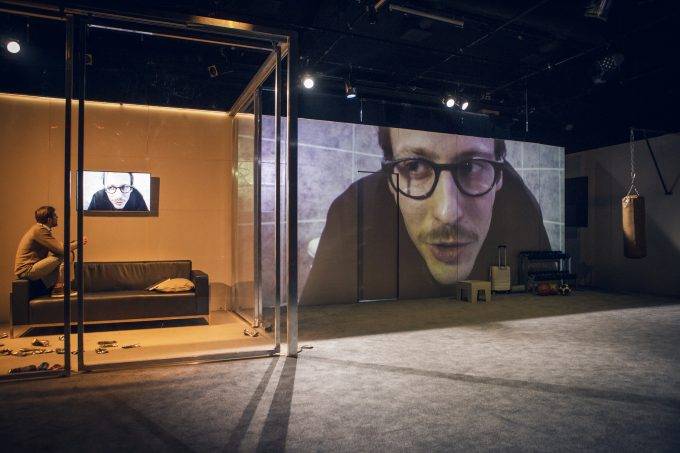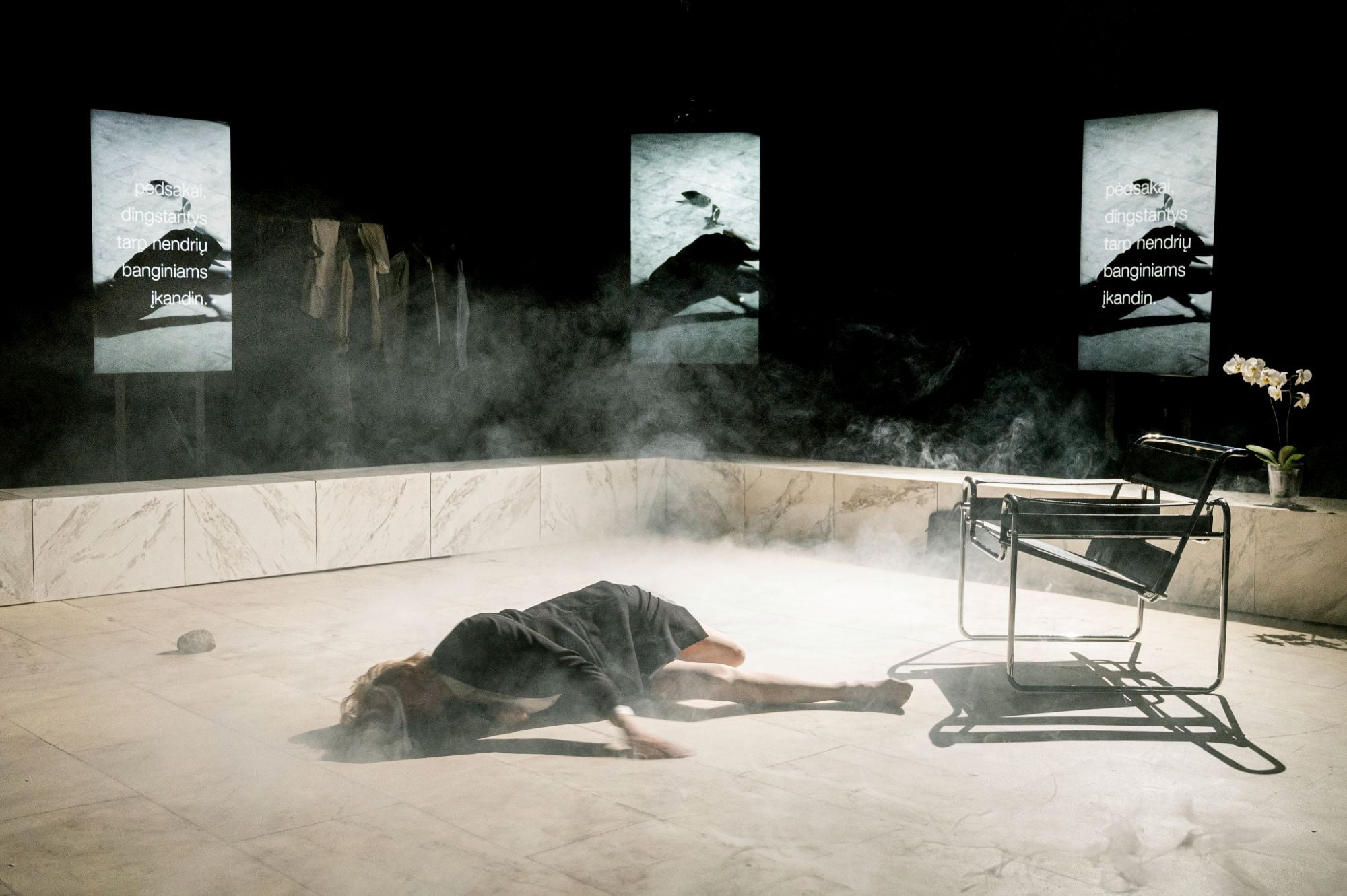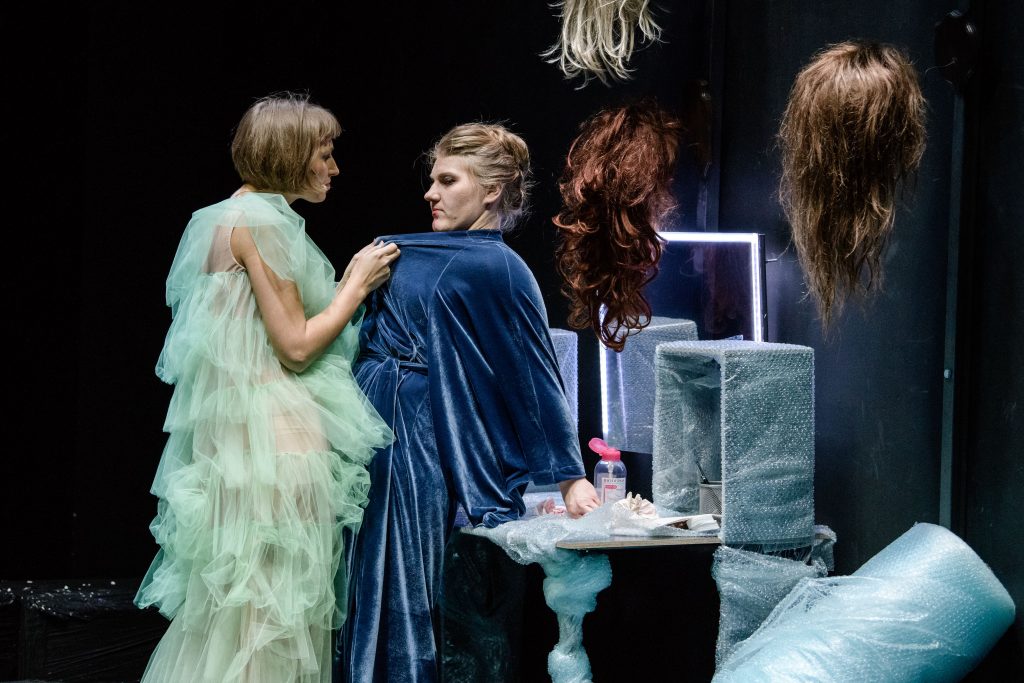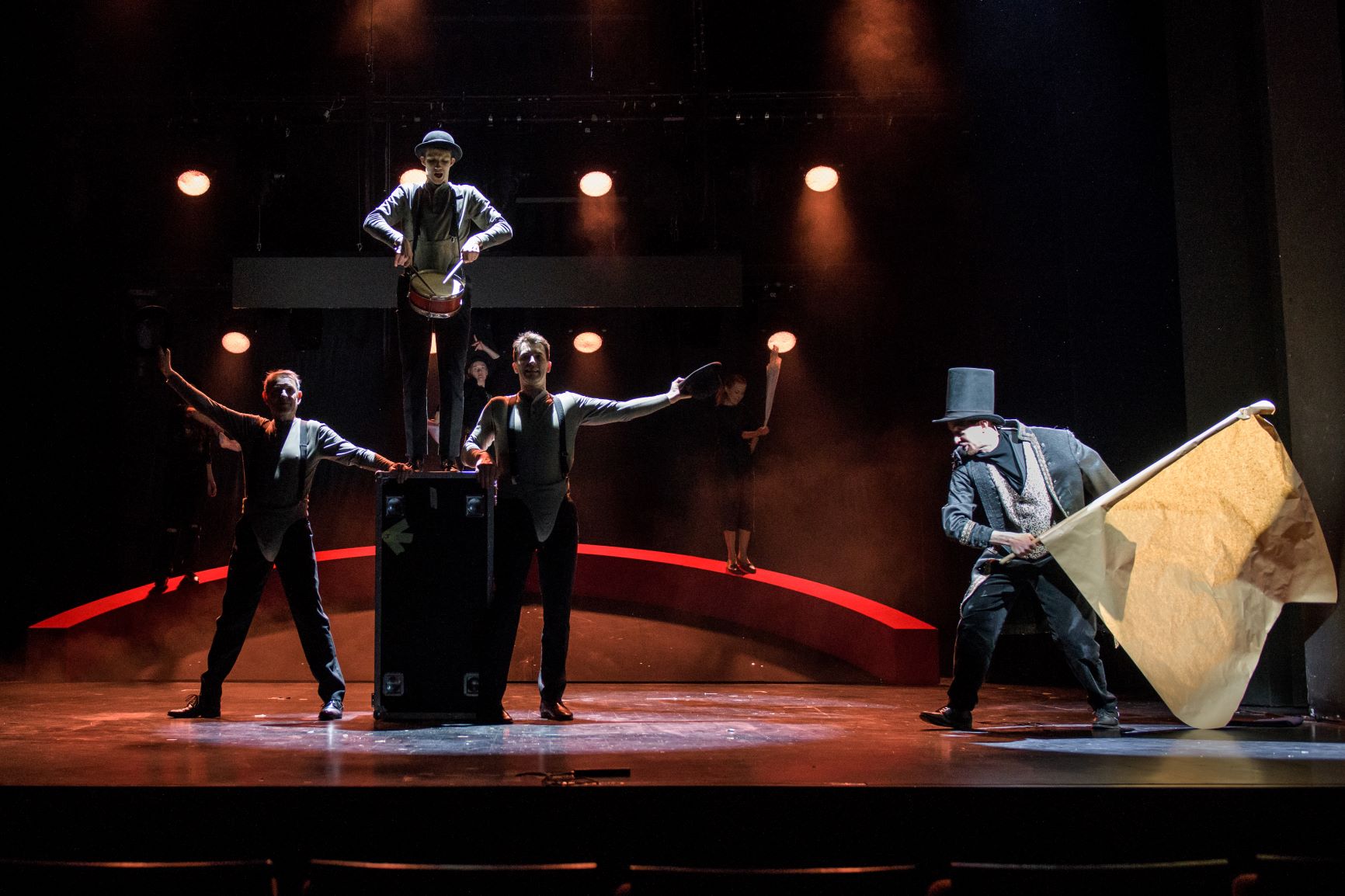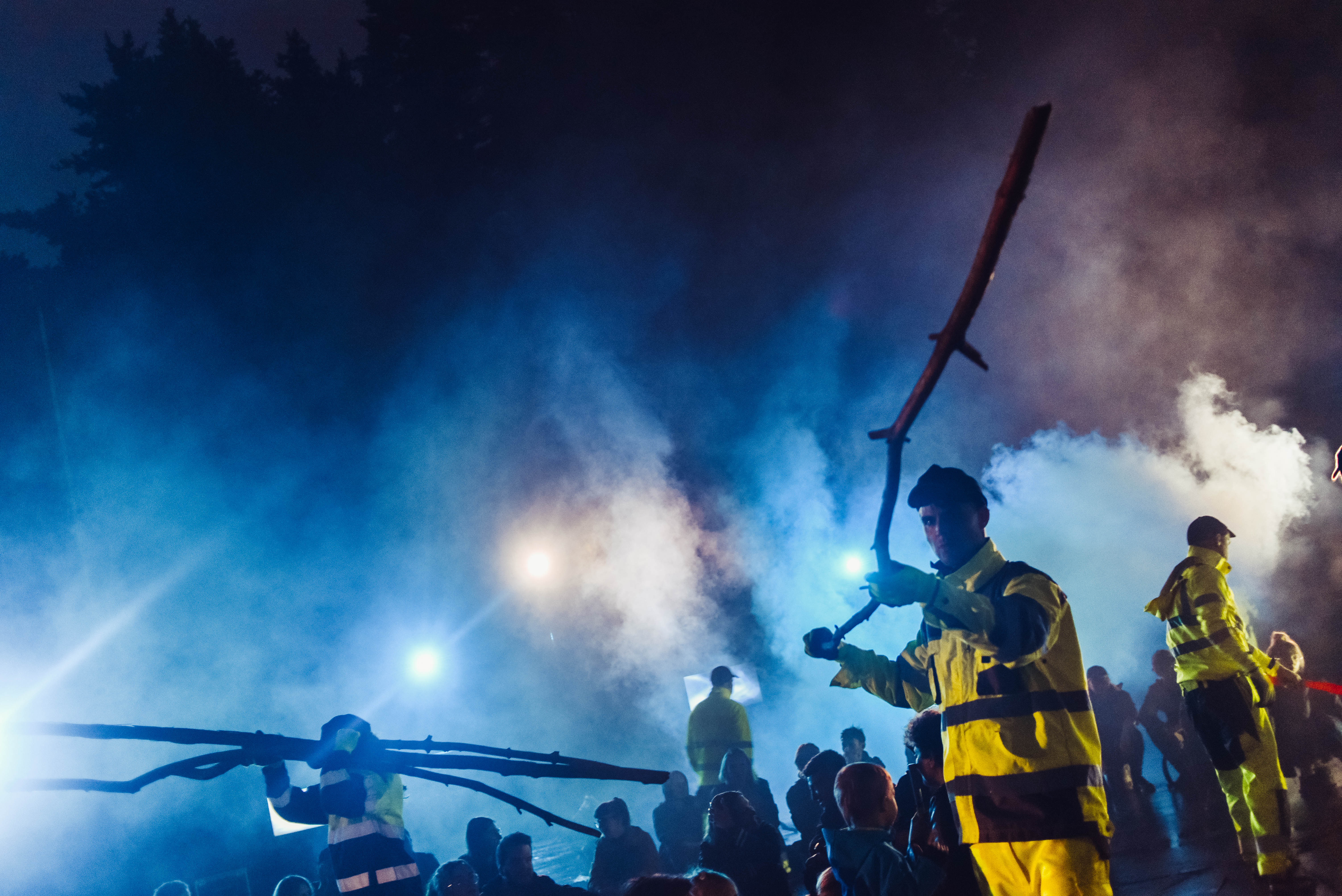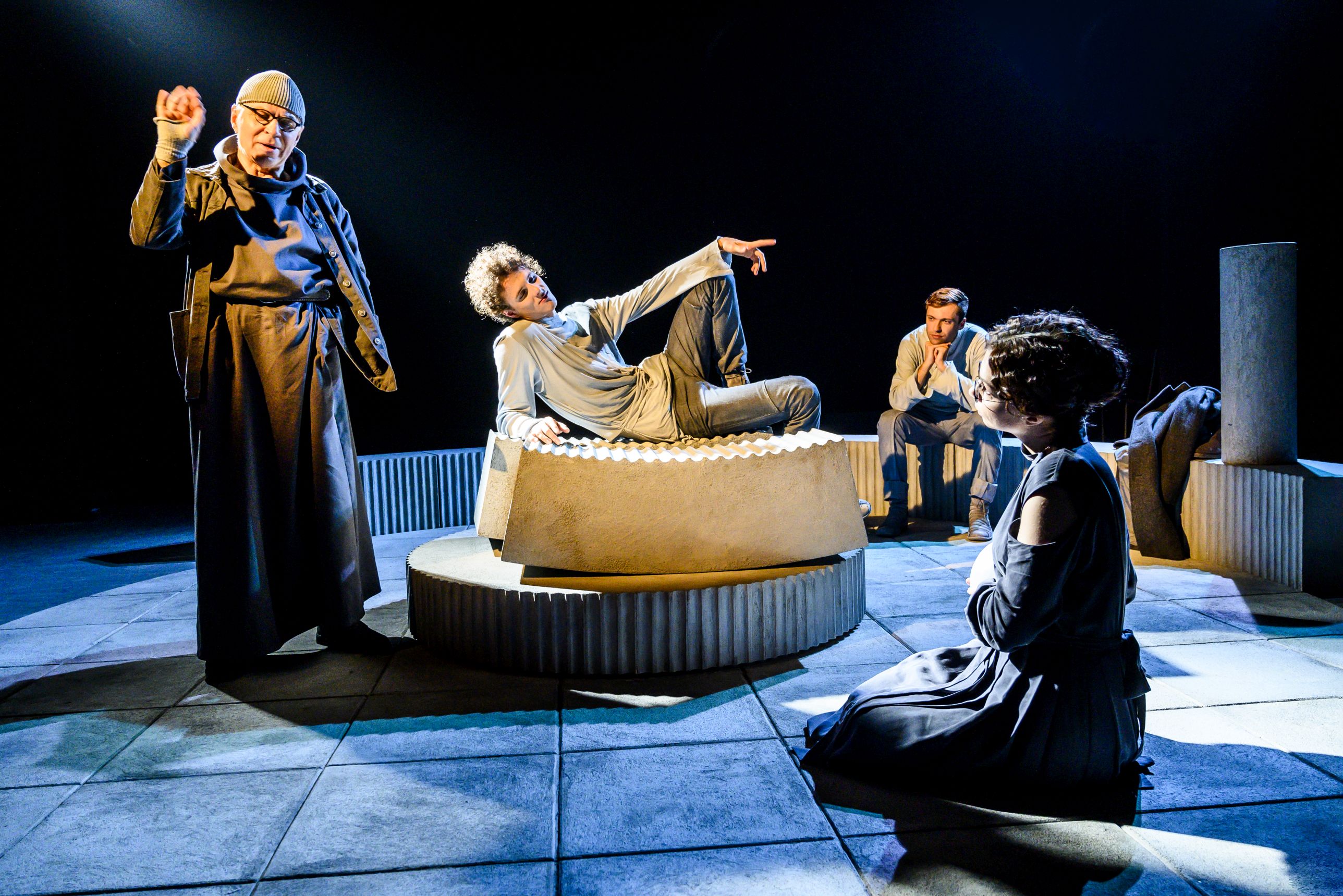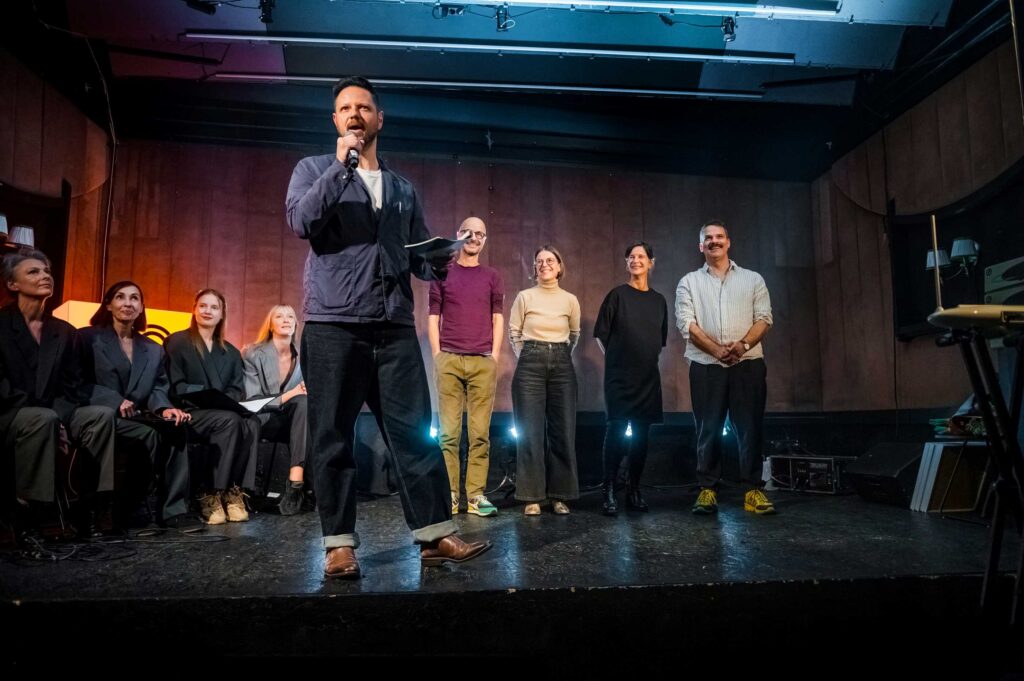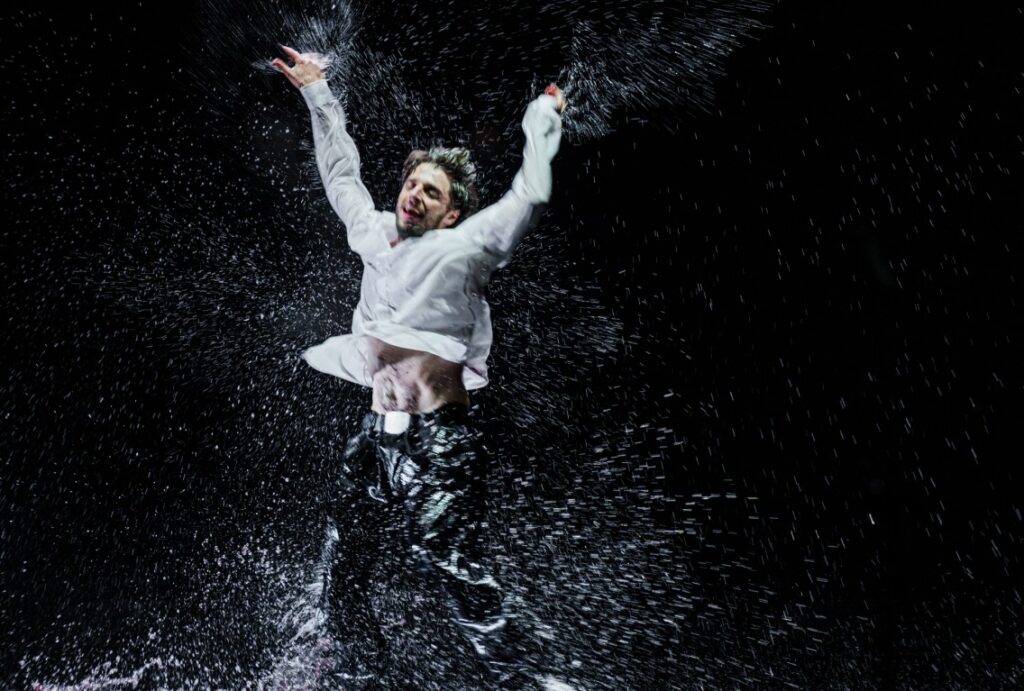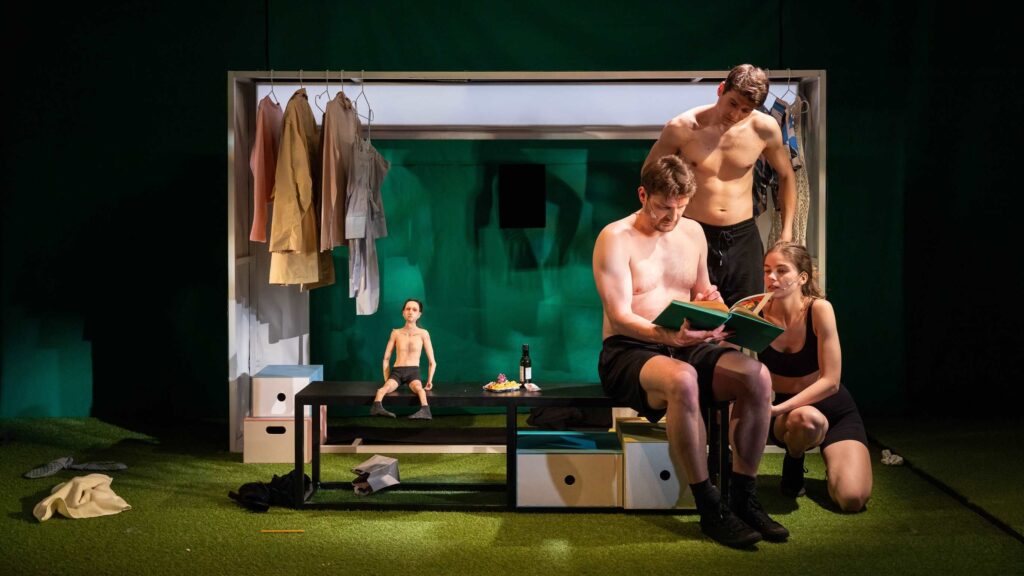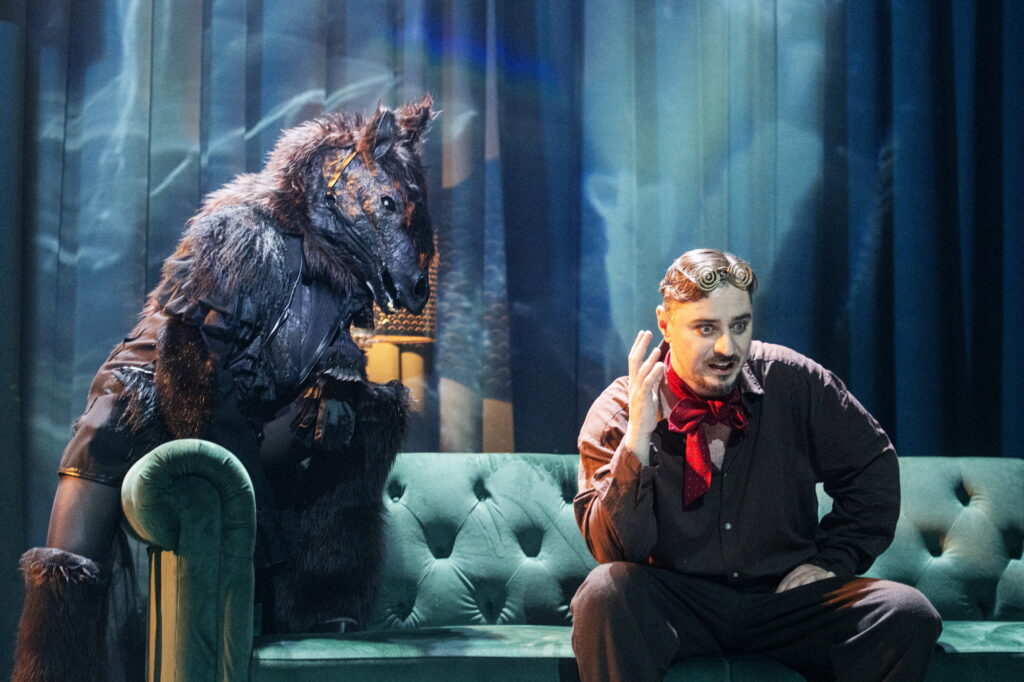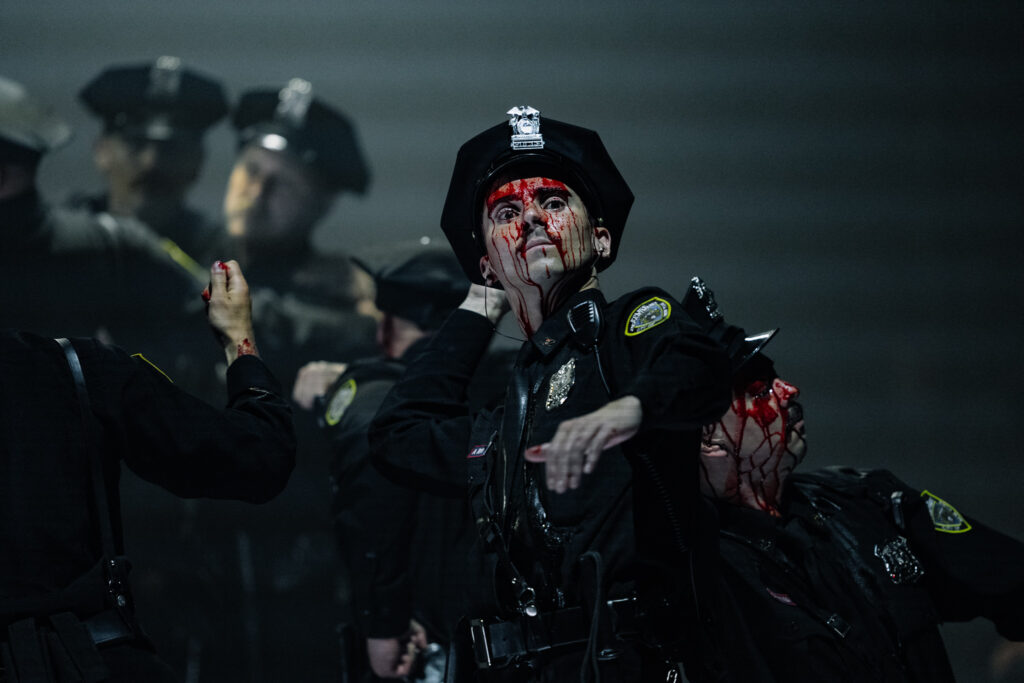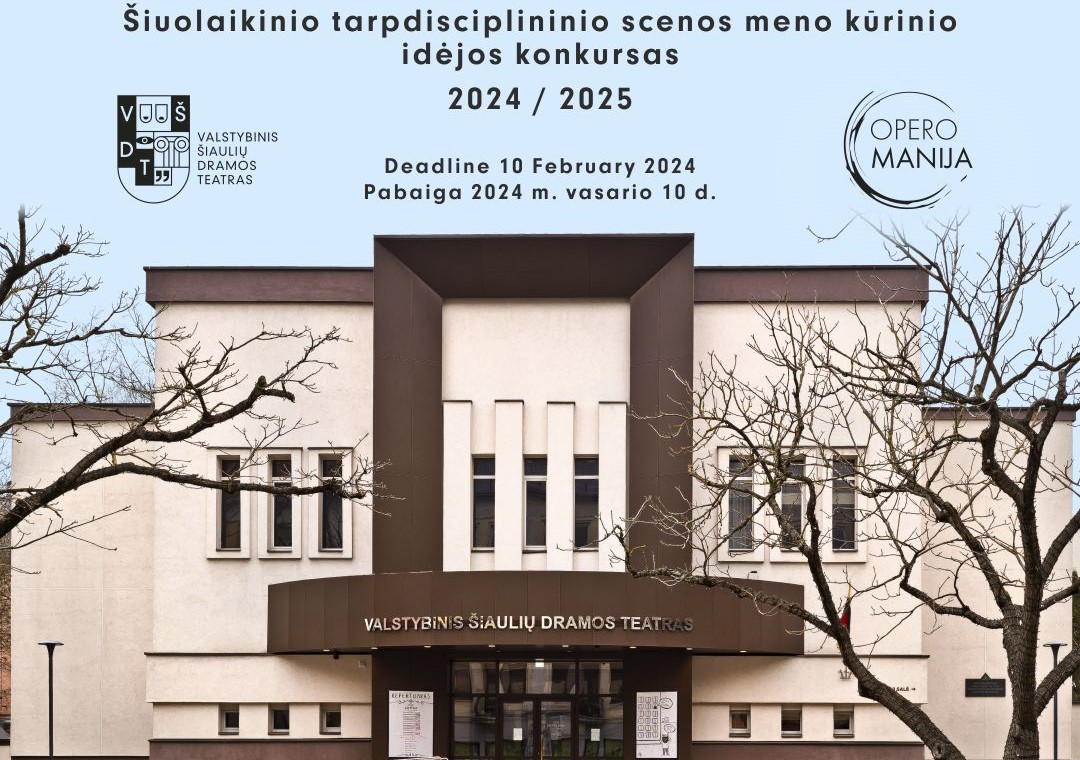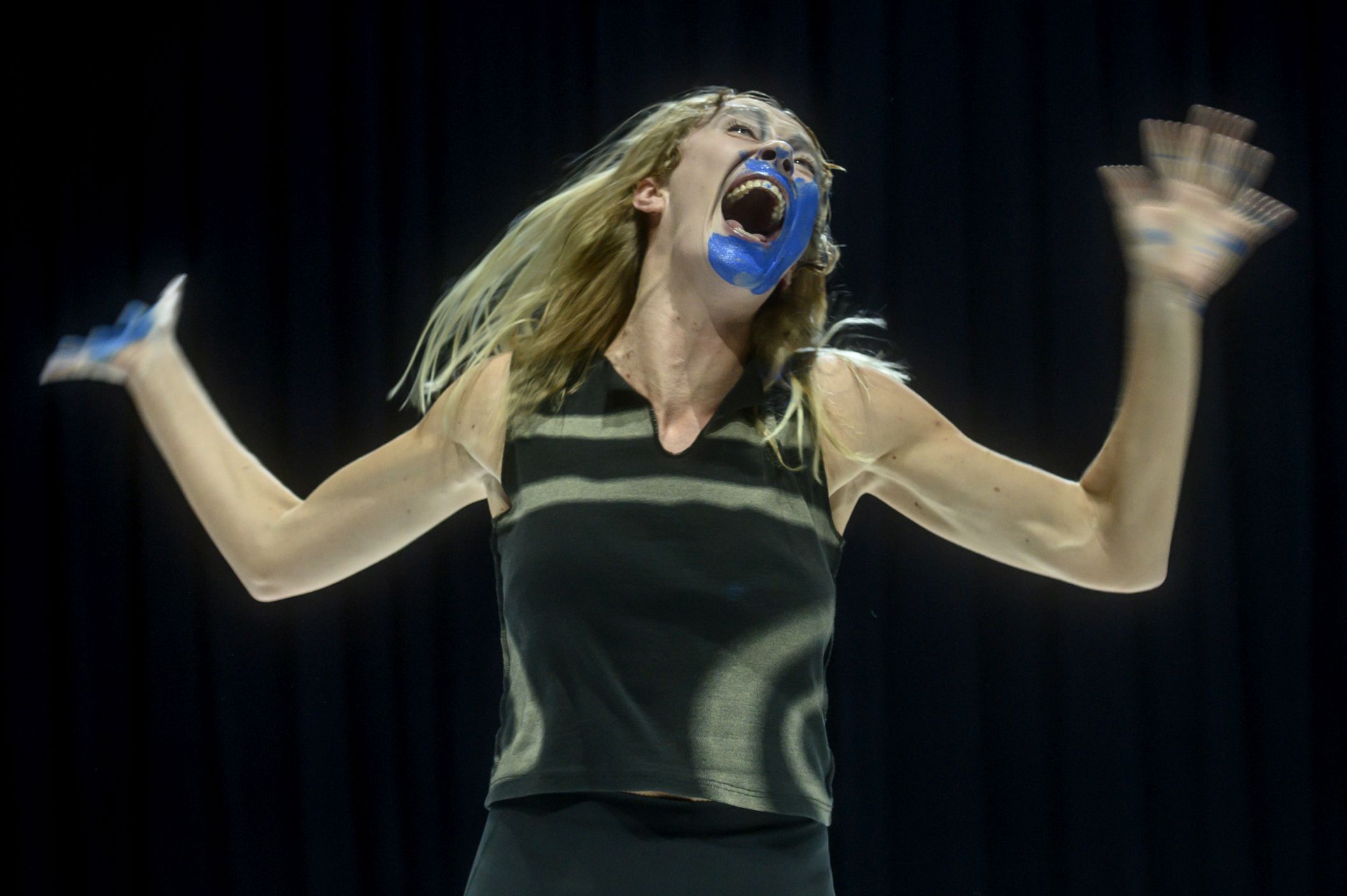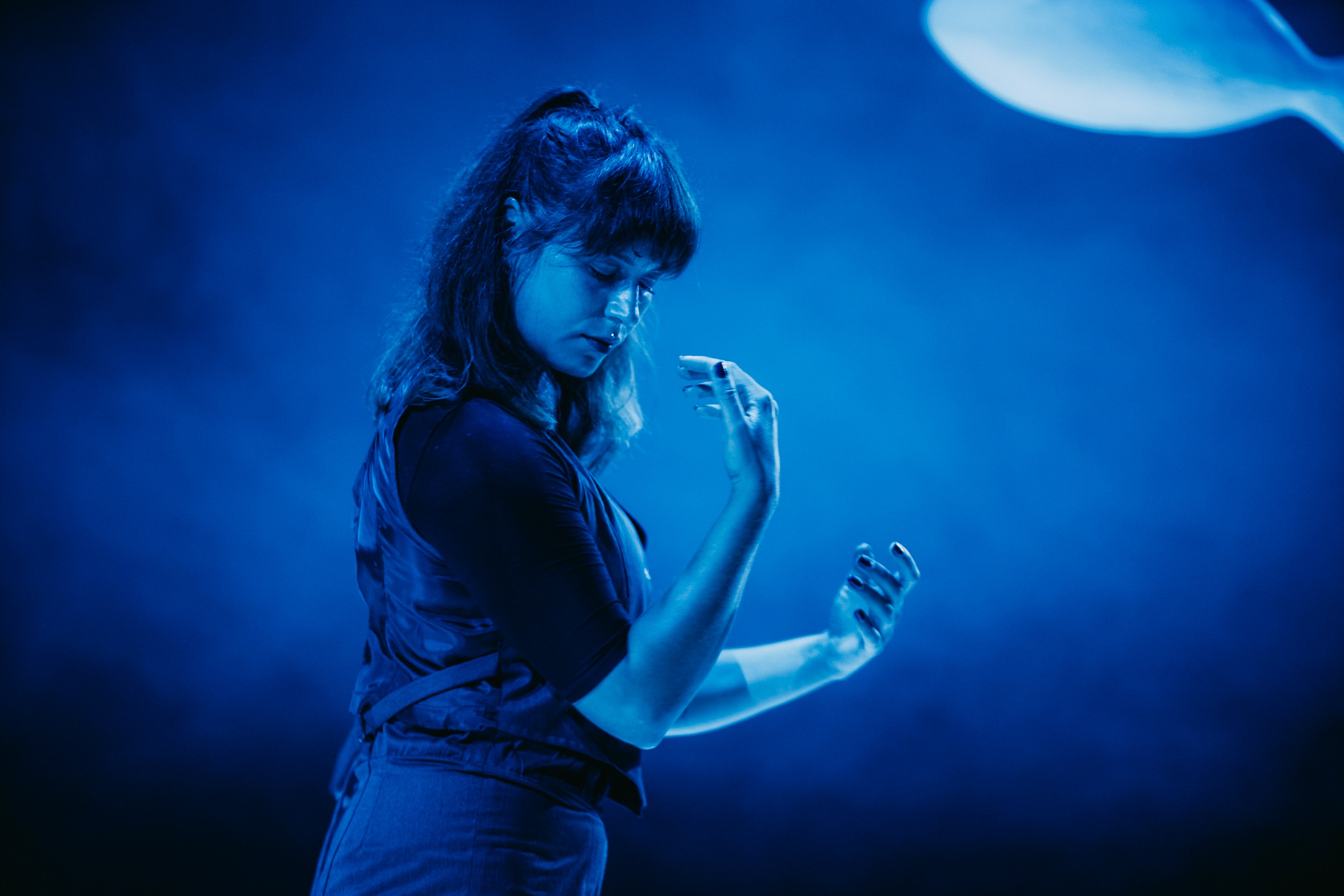In September, an article by the Polish theatre researcher Łukasz Drewniak entitled 'Chief, don't Lead us to Vilnius!' caused confusion in the minds of the performing arts community in Lithuania. The article expressed in stern tones the author's concern for the situation of Lithuanian directing, claiming that the theatre in our country has lost its former international fame, and no worthy replacements can be found among the younger generation. The latter are said to have been silenced not only by older Lithuanian directors going through a decline in their careers, but also by the 'invasion' of Polish directors. Poles have staged numerous productions in Lithuania in recent years, picking up funding that could have been invested in the younger generation, and thus facilitating the emergence of new personalities in Lithuanian theatre.
The issue of funding requires an in-depth analysis of the financial situation of every state theatre, as well as the repertoires of recent years and the management strategies; therefore, we shall leave that to a more thorough investigation. Since Drewniak is concerned about the lack of personalities, let us use this occasion to look at Lithuanian directors who are currently active. Who has taken on pupils, and what are the trends among the younger generation in Lithuania today?
In 1993, Oskaras Koršunovas and Gintaras Varnas graduated from the infamous directing course under Jonas Vaitkus at the Lithuanian Academy of Music and Theatre (LAMT). Vaitkus' next directors' course completed their studies a decade later. Agnius Jankevičius is the only graduate from this course who is still active today and is an established professional. Another course for directors came five years later in 2008. This joint acting and directing course, taught by Rimas Tuminas, was completed by Artūras Areima, Gabrielė Tuminaitė, Paulius Ignatavičius and Kirilas Glušajevas, who are all actively working in Lithuania. Areima began his career in state theatres, and later founded the Areima Theatre. He currently directs productions in premises in a residential district of Vilnius, implements diverse international projects, and goes to festivals abroad. Tuminaitė puts on productions at the State Small Theatre of Vilnius, where she also stands in for Rimas Tuminas, the founder of the theatre, who is still its artistic director. Ignatavičius, who recently worked as artistic director at the State Drama Theatre in Šiauliai (the fourth-largest city in Lithuania), is entering a new phase in his career: he directs productions based on contemporary works by Lithuanian and foreign authors, trying to 'mould' a permanent team of creators. Glušajevas is less active in directing, for he is focused on Kitas Kampas, an increasingly professional improvisation theatre originating in the teachings and ideas of Keith Johnstone.
Apart from the Areima Theatre, which presents works at famous foreign festivals (the fringe programmes at the Avignon and Edinburgh festivals), we have to admit that the work of the other directors mentioned above has not generated much interest in Lithuania or abroad. Of course, there have been stronger and weaker productions, and the directors have adapted classic and contemporary, and Lithuanian and foreign, plays. However, none have developed a style that provoke a reflection in works by other artists. Therefore, we cannot compare this generation to the older internationally acclaimed directors.
Another course for directors began in 2009 at the LAMT, under Aidas Giniotis, the founder of the first independent theatre in Lithuania. Five people graduated from it, and three of them currently work as directors in Lithuania. Gildas Aleksa works mostly at the theatre he established while studying, a company based on the principle of devised theatre. Eglė Kižaitė specialises in theatre for children, strengthened by a solid pedagogical background (incidentally, Birutė Banevičiūtė, a choreographer of the older generation, won international acclaim in drama for infants). Agnija Leonova puts on productions at state and independent theatres. While not always distinguished by their strong impact, her productions show that she has found her direction, and explores the interaction between live action and the media arts.
A directing course was formed in 2012 under Gintaras Varnas. His lectures were viewed much more positively than the style and teaching methods of any other leader of a directing course. Only four students graduated from the course; however, they can be regarded as the most distinguished team of directors working in Lithuania in the last decade. One graduate of them, Kamilė Gudmonaitė, directs productions in Lithuanian and foreign theatres concerned with social issues (based on documentary or literary material), which are staged at international festivals. Social issues are also typical of the work of Mantas Jančiauskas, whose productions are distinguished by their variety of form. However, they tend to rely on documentary sources, and themes associated with the exploration of the individual's relation with a hostile society. Žilvinas Vingelis stands out with his quest for form: the young director addresses the impact of technology and the media as acting partners on the stage. He uses puppet and object theatre, and hosts creative workshops for local artists led by prominent foreign directors. Povilas Makauskas has not been active in theatre recently. His directing career began in Lithuanian state theatres, where he was on a continuous quest for an individual creative field in terms of style and themes.
In 2014, a directing course was formed by Jonas Vaitkus (no longer lecturing at the LAMT). Almost ten people have graduated from the course, though not all of them have gone into directing. Eglė Švedkauskaitė might be regarded as the most remarkable graduate of the course so far. She is a director's assistant at the Lithuanian National Drama Theatre, and has worked at TR Warszawa, Poland. She directs productions at Vilnius-based state theatres that are distinguished by their penetrating human analysis, while their form might be described as slow-paced, ironic and discomforting. In recent years, three other directors from the same course (who completed their directing studies under Yana Ross) have been active in Lithuanian theatres: namely, Uršulė Bartoševičiūtė, Naubertas Jasinskas and Augustas Gornatkevičius. In Jasinskas' productions, the actors engage in contemporary art or more innovative theatrical forms. Gornatkevičius works in the opposite direction: his productions focus on the actors, and the relations between the characters, usually developed against a monumental set in the background. He recently started experimenting: he has created a play about conspiracy theories spreading in closed Facebook groups, which was shown in one such group four times. Meanwhile, Bartoševičiūtė seems to be preoccupied with interpreting classic works. However, they are not necessarily modern renderings of classic plays: deconstructions of classic works often serve as her creative material (such as Jon Klein's Resolving Heda). This choice is fortuitous when speaking of the rights of minorities, or those who are not in a position of power, a theme she is actively interested in.
Eimuntas Nekrošius, the best-known Lithuanian theatre director of all time, formed a theatre directing course in 2016. After his death, the students completed the programme without a leader: they deliberately refused the 'mentors-substitutes' proposed by the LAMT. Adomas Juška is currently Nekrošius' best-known pupil in Lithuania. His debut and all his subsequent productions appeared at the State Youth Theatre, where Nekrošius also started his career. Many aspects of the aesthetic approach of the young creator recall the directing methodology of his teacher. However, Juška is still searching for his own path, to facilitate his work with the naturally cohesive team of actors at the State Youth Theatre. Productions at Lithuania's state theatres are also directed by other graduates of the course: Kotryna Siaurusaitytė, Milda Mičiulytė and Ieva Kaniušaitė (the latter also takes part in productions at the Lithuanian State Youth Theatre). However, few works have been produced so far, so it is too early to comment on their work.
Nekrošius also taught two artists who are currently active as directors, although they did not complete the course in theatre directing. Paulius Markevičius, who is currently working as a director in the independent teams of Meno ir mokslo laboratorija (the Art and Science Laboratory) and Urbanistinis draustinis (Urban Preserve), attended the first and only acting course given by Nekrošius. So far, it appears that the director is most successful when he is working with non-dramatic material: his production for one person Alberai, WRU? (Albert, WRU?) attracted the most attention, based on work by Albert Camus, and an interactive performance Analizuojant žvėrį (Analysing the Beast), raising questions of the relationship between humans and nature, and nature protection. Antanas Obcarskas, who did not complete the directing course under Nekrošius (he was also an MA student on the course given by Yana Ross), debuted with Woyzek by Georg Büchner, which, along with his other work, secured him a position at the Lithuanian National Drama Theatre.
In the summer of 2021, students graduated from the course formed by Oskaras Koršunovas in 2017. It is too early to talk about them, since Laura Kutkaitė is so far the only one who has produced a fully fledged piece as a professional director (and not as a student). There is currently a course for students at the LAMT formed by the director Gintaras Varnas, along with a theatre directing MA course launched in 2021. Students on this course study in accordance with a new study programme that does not depend on the personality of a single authoritative leader.
There is also an increasing number of artists who have become involved in theatre directing even though they have completed different study programmes. We should mention here Jonas Tertelis, a graduate of a film directing course, whose productions are prominent examples of documentary theatre in Lithuania. These plays are presented at state and independent theatres throughout the country, and have received the highest Lithuanian theatre awards. Others include actors who have switched to directing, and they can be divided into two main groups. The first includes former actors who are mostly preoccupied with directing. This group includes Karolina Žernytė, who is distinguished by her exceptionally professional approach towards creative work for and about (but not limited to) people with disabilities. Žernytė has staged plays in Russia and Latvia; she has also led creative workshops in European and African countries. Other noteworthy artists in this group include Aleksandras Špilevojus, whose plays about confused young people are distinguished by their energy; and Motiejus Ivanauskas, who has recently begun to establish himself as a theatre director, his creative expression relies on light, and a concrete and ironic attitude towards difficult, recurring and absurd topics. The other category of artist involved in theatre directing is active established actors, whose productions rely on strong attention to acting expression, and who are less focused on interpretations of the text and the visual expression of the piece. This group includes Rolandas Kazlas, Darius Gumauskas and Gediminas Rimeika.
This article has listed many of the younger generation of theatre directors who are currently working in Lithuania. They all thrive in interesting circumstances: people still recall productions and courses based on names; however, those studying theatre directing under the leadership of the 'masters' do not become such prominent names themselves. Therefore, even though it is worth discussing the creative directions and the choices of the younger generation of directors, we should admit that Lithuanian audiences have not been exposed to anything that is truly breathtaking for some time. This is partly due to the fact that these singular breathtaking phenomena are put on for very small groups of viewers.
It is quite possible that we are not going to hear the names of exceptional directors in the near future whose productions will attract actors from all over Europe. However, I do not believe that this kind of directing is the only sign of good and meaningful theatre. Younger theatre directors in Lithuania appear to be much more interested in innovative forms of theatre than in classic dramaturgy; but, above all, they care about society, and every individual in it. And placing the human being above art is quite a new direction for Lithuanian theatre. For many years, we have been taught that theatre consumes a person entirely, to the extent that they have to live in the theatre, surrendering themselves to their art. Today, the rules are changing: creators are eager to be human, they are willing to live in society, and are not locked into the black box of the stage. However, having lived for many years in a place where art is born out of suffering, it is not so easy to learn and to create a miracle methodically, by speaking, listening and understanding.
One more thing. The frequent formation of theatre directing courses has intensified processes in Lithuanian theatre, at the same time as highlighting a problem: the country has no tradition of teaching theatre directing. Directors-lecturers are used to working with actors, who already know that they will have to obey the masters, for that has been the prevalent model for working in professional theatre for many years. Students of theatre directing have a different mindset. Since they are planning to implement their own ideas on the stage, they have to learn to assume leadership roles, rather than merely listening to the masters. How does one raise such an artist? We are not yet sure. Perhaps this is why we seek talents who do not require teaching, since they will bring with them everything we are unable to give?

.jpg)

